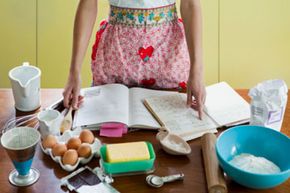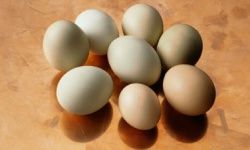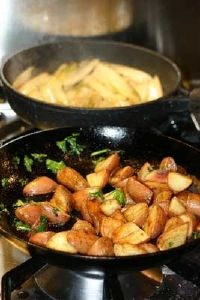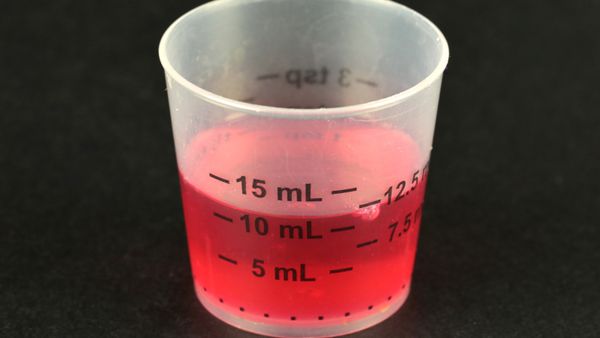When you scale a recipe by adjusting ingredient quantities, you increase or decrease the amount of food it produces. Sounds simple, right? In reality, this can be oh-so-complicated -- especially if you're trying to use half an egg to reduce a batch or whip up a birthday cake that serves 80. In lieu of a brain-tickling algorithm that adjusts ingredients and servings, we'll let you in on a few simple rules.
Going to Market
Advertisement
Like most cooks, your dinner probably starts at the local market. If doubling a recipe, you'll buy twice as much of the main ingredients such as meat, poultry, seafood, pasta or vegetables. From a shopping standpoint, you'll want to round your ingredient quantities to whole numbers.
As you're putting pencil to paper, keep in mind that most recipes shouldn't be increased more than four times [source: AllRecipes]. We'd even argue that twice is a good limit. If you need to serve more people than a double recipe will accommodate, make the original recipe in several batches. You may have to do a little more mixing, but the end result should be more predictable.
A Little of This, a Lot of That
So you've perfected bourbon chicken and want to impress 12 of your closest friends. Before you grab a calculator and multiply a four-serving recipe by three, eyeball the ingredients. See the spirits and seasonings? When you scale up a recipe, these ingredients don't follow the rules. That's because alcohol can overpower other flavors (so unless you want to serve chicken with a hangover, add it sparingly). According to the editors of Easy Home Cooking Magazine, a double recipe should include only 1.5 times the amount of seasonings the original recipe called for. The same goes for alcohol, baking powder and baking soda.
And, when you heat the oven or stovetop for a double recipe, don't double the temperature. You need to increase the temperature by only about 25 degrees for super-sized recipes. If you're mixing up half a batch, cook or bake it at about two-thirds the temperature indicated by the recipe and about two-thirds the amount of time the original recipe suggests [source: AllRecipes].
Of course, scaling a recipe down can be tricky. Say you're stirring up half a recipe of pancakes, that's a game-changer. You can't buy half an egg, so what can you do?
Exceptions to the Rule
There are times when rules are made to be broken -- especially when scaling down a recipe that uses eggs. That's because eggs are not precisely packaged. Sure, they usually come in a relatively uniform shape, but some are larger and contain more liquid than others. So, what's a cook to do? We say crack the egg, mix the yolk and white, and then pour half the mixture into the recipe. Plus, we'll let you in on a secret: If you use the whole egg, even when you need only half, just use a bit less of other liquids. You'll still get tasty results because most recipes, like pancakes, allow for imprecise measurements.
So, to size your favorite recipe up or down, just adjust your ingredient amounts, tweak the cooking temperature and you're sure to have a delicious dish ready for all your guests.
Advertisement



